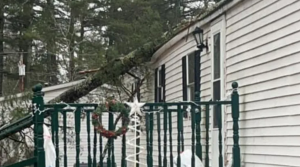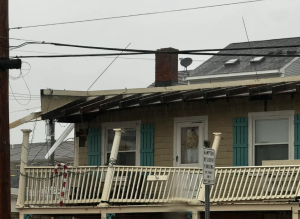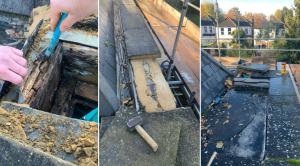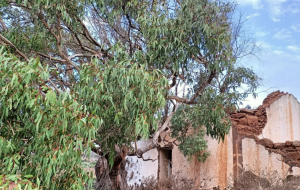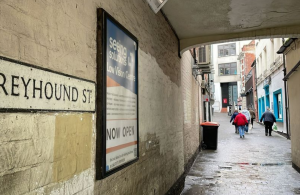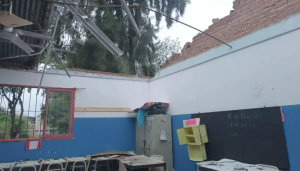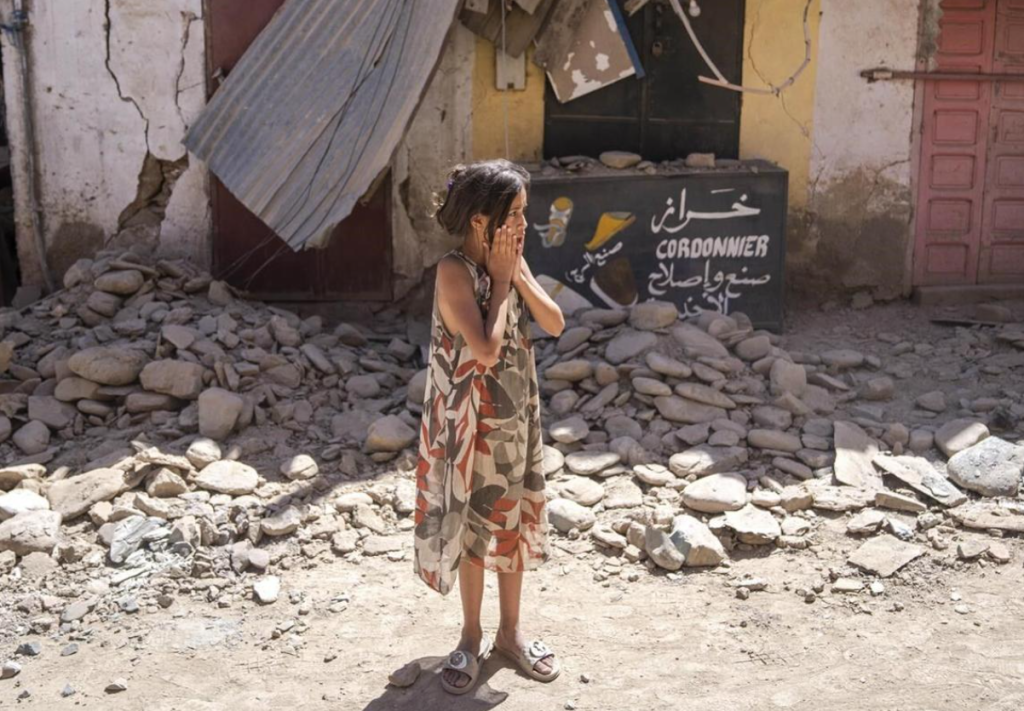
By Sam Metz
AMIZMIZ, Morocco, (AP). A 40-year old plumber washes laundry on his roof. It is half standing and the rest in piles visible on the roof.
Alachoun, a survivor near the epicenter after the Friday earthquake in Morocco. The authorities have confirmed 2,946 fatalities and several thousand injured.
Although he had to cross boulders, wires, and other obstacles to reach the kitchen or his bedroom in Amizmiz (the Mellah), the old Jewish Quarter, he stayed at his family home. The family’s tent was too small, he said.
The life of the man at home continues.
In the remains of the home, chairs are covered in dust and debris from broken walls. Large items like a washing-machine, tables and fridges cannot be removed.
The man cooks chicken with carrots and olives on his gas stove, in an area that he keeps tidy. When aftershocks occur, as was the case with a 4.6-magnitude earthquake on Thursday morning, it is even more dangerous.
Alachouns heard last Saturday about the arrival of assistance. The Alachouns received water and food, but lacked a shelter. It wasn’t until Tuesday that authorities assigned them to one of the 30 or so small yellow tents placed in a large square at Amizmiz.
“They said that we didn’t need to go to the store and supplies would be delivered.” We waited. Alachoun’s younger sister Loubna spoke from the polyester coated tent, which she shared with her father, brother, mother and close family friends.
Alachouns is among the many Moroccans who are now questioning their futures as nighttime temperatures drop and winter nears. Officials have provided water and food to many of the villagers, but they have also said that it will take between five and six years to rebuild High Atlas towns. They have set up a recovery fund.
Tourists frequent parts of Marrakech’s historic old city including the Jewish Quarter. However, immediate humanitarian aid is still the priority in Al Haouz – the province most affected by the earthquakes.
Alachouns will not leave their homeland, even if the mountain villages in the area aren’t rebuilt. Many people from the area identify with Morocco’s most populous indigenous group Amazigh and are devoted to their homeland. Alachouns are unsure that financial aid will be enough to buy them an apartment in Marrakech for the whole family, which is more than an hours drive away.
This is true for many parents of small children.
Naima Ait-Brahim Ouali was a housecleaner who lived with her family on the 3rd floor of a building in Sourejdid in Amizmiz. The neighborhood is no longer standing. Her daughter and she fell from the third floor as the earthquake tore the roof off their building.
She has moved her whole neighborhood to the corner of a large tent city at the heart of town. She’s worried for the future of her five kids — aged 25, 20, 14, 14 and 10, with some having just begun school.
She has two daughters who love to study Arabic. Her daughter is also passionate about Quran-reading. Her children are drawn to drawing and the theater. Now, fear is a constant companion around the same time as the last earthquake on Friday night.
Her five children, one of whom has nightmares, “saw death”, she claims.
UNICEF, a United Nations agency which provides assistance to children, has estimated this week, that around 100,000 children have been “impacted by the powerful quake.” This figure is in line with an earlier estimate from the U.N., that 300,00 people had suffered. Morocco has about one-third children.
UNICEF’s Ricardo Pires is a UNICEF spokesperson who said the organization was concerned during natural disasters about children suffering trauma from displacement and their basic needs, like access to water.
Children can be separated from family members. Pires stated that children could be in a displaced situation, moving around, or not knowing how to get to safety. It’s a big risk when there are humanitarian crises, or when an earthquake like this breaks and certain areas are hard to access.
Ait Brahim Ouali has said she will not live in brick multi-level apartments, even if government funds are provided to rebuild. Ait Brahim Ouali is committed to staying in Al Haouz even though it’s difficult for her and her children.
“We’re afraid of the future.” She said: “It’s only been a few days since we started our new school year, and the earthquake has ruined all of it.” Standing under an umbrella in front of a yellow-colored tent where children were playing she explained that the earthquake had spoiled everything. “We want to find a place where we can hide from rain.”
We invite you to read the following details for a full overview of plumbing services at https://www.imperial-restoration.ca/. Our team is dedicated to providing you with a variety of plumbing services. If you need plumbing services such as repairs, installation, maintenance or an emergency service, our team will provide high-quality, affordable solutions at 24-hour emergency plumbing repairs Toronto. You can contact us either by email or phone if you need to ask any questions regarding plumbing services. We also offer transparent pricing and are happy to schedule appointments. Our top priority is your comfort, your convenience and your plumbing’s proper function.
